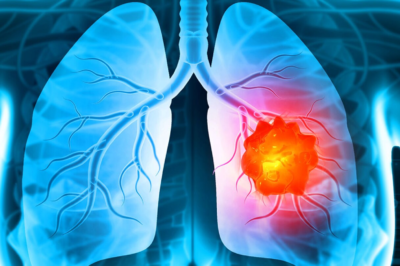
Lung cancer stands as a formidable challenge to global health, being one of the most prevalent cancers and a leading cause of cancer mortality. Its onset is attributed to the transformation of normal lung cells into uncontrollably proliferating entities, forming tumors. Although smoking is the primary culprit, it’s crucial to acknowledge that lung cancer doesn’t discriminate against non-smokers. Here’s a rundown of ten actionable tips to safeguard your lung health:
- Bid Farewell to Smoking: Recognized as the predominant lung cancer trigger, ceasing smoking can significantly bolster your lung health. Explore cessation aids, therapy, or support groups to enhance your quitting success rate.
- Steer Clear of Secondhand Smoke: Passive smoke exposure poses a notable lung cancer risk. Designate your living spaces as non-smoking areas and advocate for smoke-free environments.
- Conduct Radon Tests: This invisible, odorless gas can infiltrate homes, elevating lung cancer risk through prolonged exposure. Test your residence for radon and employ mitigation strategies if levels are high.
- Mind Occupational Exposures: Workplaces, especially in construction, mining, and manufacturing, might expose you to carcinogens like asbestos and diesel exhaust. Adhere to safety protocols, wear protective gear, and ensure adequate air circulation.
- Prioritize Air Quality: Air pollution, both indoor and outdoor, can increment lung cancer risk. Limit exposure to polluted areas and consider air purifiers, particularly in densely populated or industrial regions.
- Embrace a Nutrient-rich Diet: A diet abundant in fruits, vegetables, and whole grains can lower cancer risks. Foods laden with antioxidants, such as berries and leafy greens, offer added protection.
- Stay Active: Regular physical activity is beneficial not just for overall health but also for diminishing lung cancer risk. Aim for a mix of moderate and vigorous exercises weekly.
- Keep Hydrated: Adequate hydration is pivotal for lung tissue health, facilitating optimal respiratory function and diminishing the risk of pulmonary complications.
- Opt for Vaccination: Infections like HPV and hepatitis can elevate lung cancer risk. Vaccinations provide a shield against these viruses, following medical recommendations.
- Undergo Regular Medical Exams: Early detection through routine health screenings can significantly improve lung cancer outcomes. Discuss your risk factors with your healthcare provider and adhere to recommended screening protocols.
By integrating these preventative measures into your lifestyle, you can significantly reduce your lung cancer risk and promote respiratory health.








































Leave a Reply